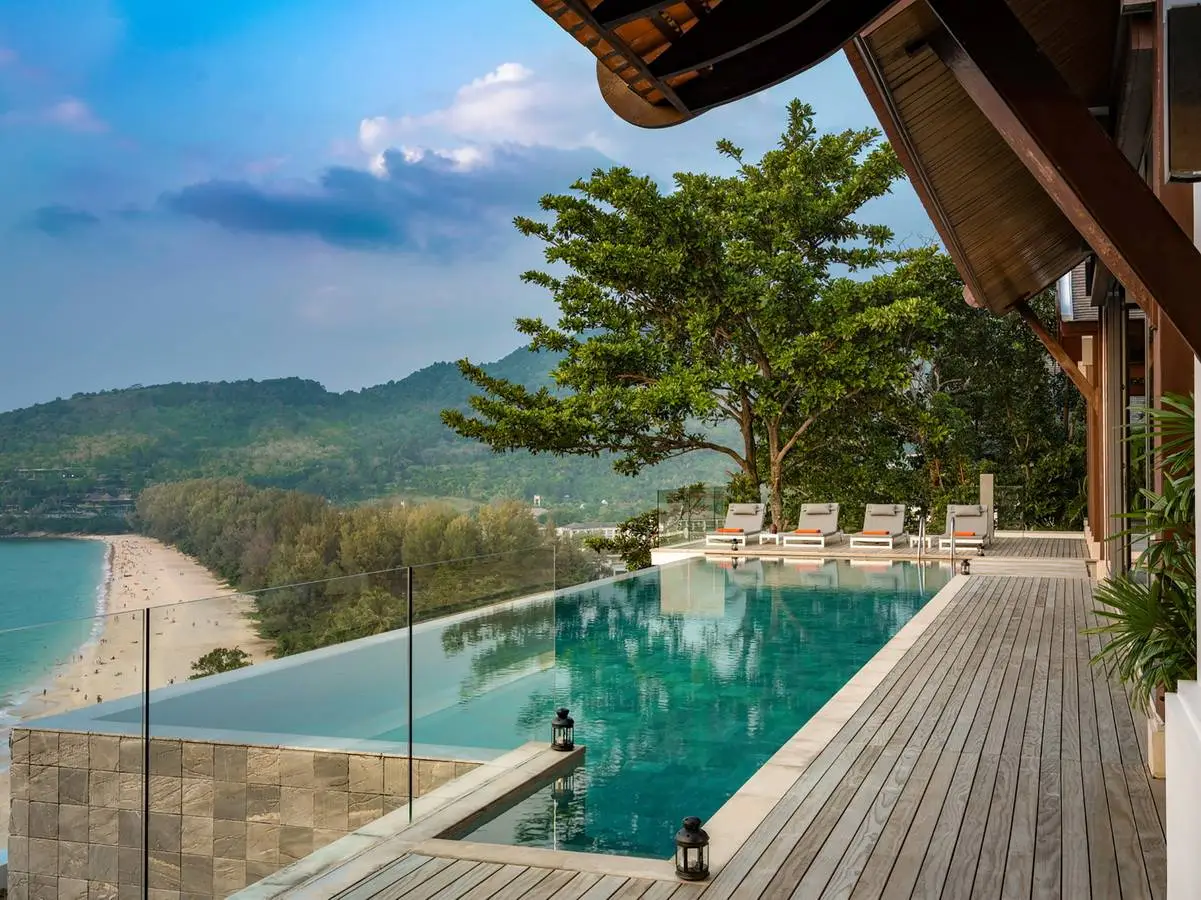Phuket vacation rentals 2025: Shifting demand, smarter investments
The market today is not about simply offering a villa—it’s about offering peace of mind

Phuket’s vacation rental market is navigating 2025 with a mix of resilience and reinvention. While Thailand’s overall tourism industry has softened in recent months, the island has carved out its own growth path. In fact, arrivals to Phuket rose eight percent in the first half of the year, contrasting with a nationwide dip. This divergence highlights how Phuket has become less dependent on legacy markets and more attuned to new patterns of demand.
A changing guest mix
The downturn in Chinese tourism—a 33 percent drop nationwide—has forced a rethink across Thailand. Phuket has filled the gap with travelers from India and Russia, both recording impressive double-digit growth. India, now Phuket’s largest source market, illustrates how the island is increasingly appealing to regional travelers who value connectivity, luxury, and cultural familiarity. For property managers and investors, this change is not just a statistical shift but a strategic pivot. Marketing, amenities, and service delivery must be realigned to match different cultural expectations.
As Femke Beekers, Cluster Country Director Thailand & Japan for Elite Havens, observed during her recent presentation at the C9 Sessions: “The market today is not about simply offering a villa—it’s about offering peace of mind. Guests want privacy, security, and the confidence that their stay will meet personal expectations.”
Market pressures
The supply side tells another story. New villas and condominium projects continue to enter the market, driving up competition and putting pressure on occupancy and yields. At the same time, price sensitivity among travelers has grown, particularly as rival destinations like Vietnam and Japan market themselves as affordable alternatives.
The challenge isn’t a lack of demand—Phuket is attracting visitors—but rather aligning products and pricing with what guests truly value. Added to this are external factors: travel advisories in June raised concerns about safety, while shifting social dynamics, such as the visibility of cannabis use, have sparked debate over Phuket’s family-friendly positioning.
Wellness, long stays, and evolving expectations
Looking forward, national tourism strategies play to Phuket’s strengths. The Tourism Authority of Thailand has emphasized high-spending guests and long-stay markets under banners like “Healing is the New Luxury” and “Long Stay Paradise.” Vacation rentals—particularly villas—fit neatly into this vision. With private pools, expansive living areas, and personalized services, they appeal both to short-term holidaymakers and those seeking extended stays with a home-like feel.
Beekers also highlighted that evolving guest preferences demand more creativity from owners and operators: “Guests are becoming more selective. Properties that combine luxury with functionality—whether that’s wellness programs, halal-friendly dining, or child-friendly layouts—will stand out in a crowded market.”
Where the opportunity lies
For investors, the opportunity is less about flooding the market with more units and more about delivering the right type of product. Villas that balance luxury with practicality—child-friendly spaces, wellness-focused amenities, and adaptable layouts—are proving most resilient. Future developments that integrate gyms, yoga pavilions, entertainment rooms, and flexible group configurations are increasingly expected rather than optional.
Phuket’s vacation rental market isn’t entering a runaway boom, but it is entering a more sophisticated phase. Investors who remain agile, focus on guest-centered design, and anticipate evolving demand patterns are best positioned to thrive in the second half of 2025 and beyond.
About Bill Barnett

In addition to being a leading consultant, he is a frequent speaker at industry events and conferences. With over 30 years’ experience in the Asia Pacific region, he has an extensive background in hotel operations, development, and asset management. His past employment highlights include Senior Corporate roles at international hotel chains and publically listed companies. Bill is considered to be one of the foremost industry experts in the hotel residences sector. To date, Bill is the author of four books on travel, property, and hospitality under the titles of Slave to the Bean, Collective Swag, It Might Get Weird and Last Call.
For more information, email: [email protected].
Recommended
Thailand advances digital finance with blockchain real estate push
Issues over marrying blockchain incentives to a physical asset class is hampering Thailand’s digital finance push
Johor Bahru emerges as a key economic partner to Singapore
Once regarded as a poor relation across the causeway, Johor Bahru is cementing its status as an integrated economic partner to Singapore
Vietnam sets new rules to reward clean energy producers
Vietnam’s government has passed new regulations allowing homeowners and landlords to sell solar power back to the national grid for the first time
Bangkok developers shift focus to safer low-rise and suburban projects
Concerns over Bangkok’s seismic safety in the wake of the recent Myanmar earthquake have prompted a shift toward low-rise developments









